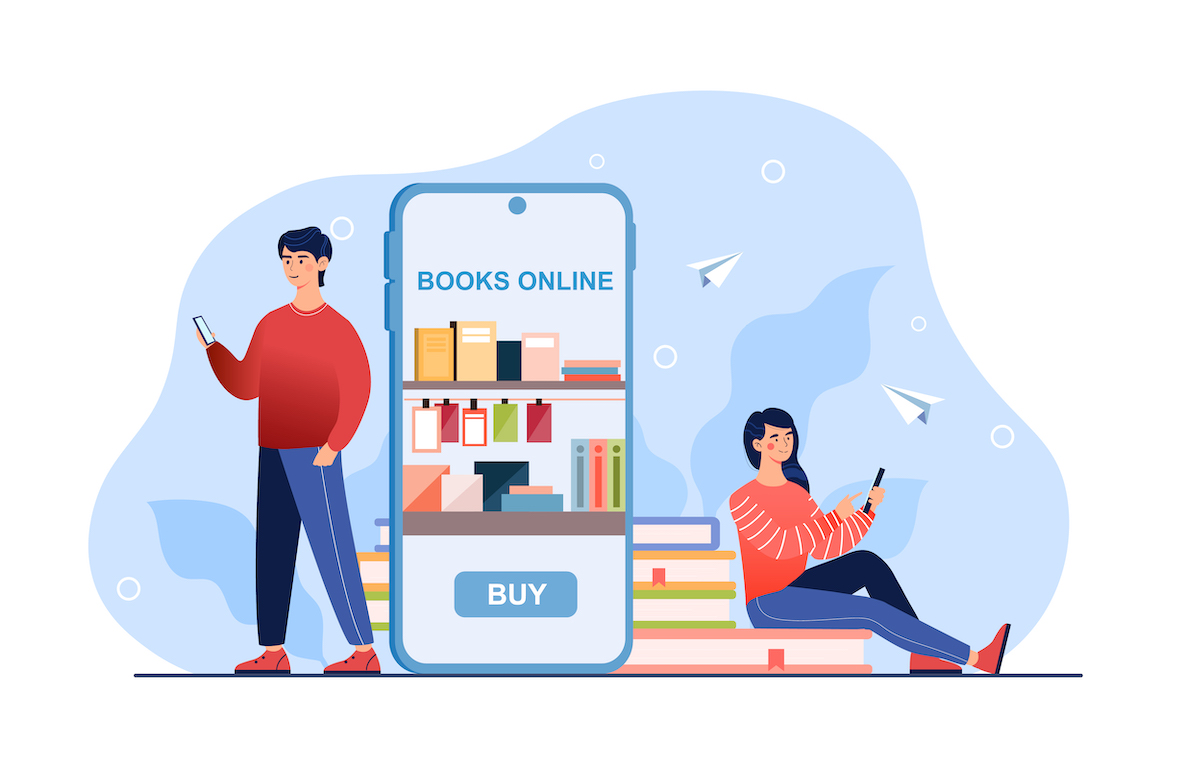
Cost of Editing a Book
October 14, 2020
Different Types of Book Editing: Understanding Your Options
October 28, 2020Indie Book Marketing Ideas
The number of self-published books has grown over the past decade, and the industry is poised to continue its progress. As an independent author, you have many tools and resources to help you achieve your self-publishing goals and build an author platform. Implementing some helpful indie book marketing ideas can help ensure your book makes it to the right readers.
Marketing your book does not have to be expensive, but you do need to spend time planning. From your own writing experience, you know that solid research is the foundation of great work. Likewise, you should start your marketing plan by researching how other authors have marketed similar titles, as well as the habits of your target audience.
With so many resources available to reach readers online, via social media, and in person, you should evaluate all options and then decide what works best for your book promotion plans. The ideas in this article are not a one-size-fits-all solution for every author, but they can give you a good start in customizing your own plan.
How to create an author website
Creating (and maintaining) an effective author website is the starting point for all your online marketing efforts. Everything else you add to your plan will direct potential readers back to this site. It should be professional and customized for your needs. In addition to providing basic information, you can choose to interact with readers via a blog or a mailing list.
What to include in your author website
Your website should let readers learn more about you, so include an in-depth bio to give potential readers a sense of who you are. You should also plan to devote a page of content for each book you’ve written. These pages offer a description of the book, as well as links to reviews and online retailers.
The media section can contain your photo and links to download more information specifically for the press. Your contact page should have the obvious—links to your primary contact information—as well as your social media profiles.
If you plan to maintain a blog for your audience, include it in your website. You should commit to updating it regularly so that readers have a reason to engage with you. In addition, you can offer guest blogging opportunities for other authors in your network. You might also consider offering a newsletter with extra content for subscribers on your email list.
How to design your author website
You can always hire a web programmer or designer to help you set up hosting and build your website. Fortunately, you also have a variety of tools to choose from if you need to tackle the project independently. These tools don’t require that you know how to program or code. Many offer free versions, with the option to add more for a monthly, quarterly, or annual fee.
You will also need to consider the visual aspect of your author website. For instance, a high-quality headshot is important to include with your bio. Also consider other ways to include photos and interesting visual elements. For example, you could include favorite quotes from your book displayed in an appealing way. The internet offers many resources for finding royalty-free stock photos and learning about graphic element creation.
Benefits of collaborating with book bloggers
Exploring opportunities in the network of book bloggers is a smart addition to your book marketing strategy. Book bloggers are reading enthusiasts who can help promote your book to like-minded readers. Not only do they love to read widely, but they are in the habit of writing on a regular basis.
Book bloggers have cultivated an online audience that is actively looking for new reading suggestions. Your indie book could be their next book review feature.
Word of mouth is a dependable way to help potential readers find your book. In addition, book bloggers can help you build your digital network and find a support group of other indie writers.
Building your author network with book bloggers
First, research which blogs would be a good match for the tone and style of your book. Keep an ongoing list of recommended book blogs. Ask peers for recommendations, and use the internet to research other possibilities with websites that maintain book blogger listings.
Blogs are excellent ways to target readers of a wide variety of specialized subjects. Spend some time reading blogs that fit your genre, and research their policies on author pitches. When you find good matches, offer a free review copy.
How blog tours can help publicize your book
While book bloggers are a continuous source for book publicity and reviews, blog tours can provide a more targeted approach over a specific period of time. Instead of physically attending a bookstore signing event on a traditional book tour, you can make guest appearances on a variety of targeted blogs during a one- to two-week window.
Your appearance can be a guest post, a giveaway, an excerpt from your book, or even an author interview. Work with the blogger to decide on your content. Be sure to create original content for each “stop” on your virtual book tour.
This type of promotion is particularly timely considering the current health concerns with large gatherings during the COVID-19 pandemic. You will also save on travel expenses and time spent managing logistics for in-person events.
Bonus material to include with your book
Everyone loves to get something valuable for a bargain—or better yet, for free. This includes books as well. Especially if you are a new indie author, offering bonus materials with your book can entice readers to buy.
The material should add to the story or support the instruction in your book, depending on the genre and topic. Whatever type of bonus material you choose, it should have a specific goal and ultimately enhance the reading experience for the buyer.
Ideas for bonus materials or packages
Use your book’s topic and target audience to decide on the best bonus marketing material for your book. Is your book nonfiction? Then a checklist might appeal to your readers as an easy format to remember key points. Is your book fiction? Your readers might enjoy a short story involving the characters, set either before or after the events of the book. For a children’s book, consider a game or flash cards.
Creating bonus materials can be a fun and creative exercise for you. Consider these options as well:
- Book club discussion guide
- Music playlist (Spotify)
- Printable artwork to download
- Quizzes or puzzles
- Worksheet for ideas the reader needs to explore or journal about
- Video demonstration of a topic in the book
Social media platforms to use to market your indie book
With the prevalence of social media for all age groups and demographics, you cannot leave it out of your marketing plan. An active social media marketing presence is vital for authors who self-publish.
Social media platforms are accessible and affordable. They also allow you to see real-time reactions to marketing campaigns and interact directly with each potential reader.
How to decide which platforms are right for your book
First, you need to find out which social media site your target readers are primarily using. In addition to their interests, consider your audience’s age group and other demographics for social networking as well.
For example, if you are promoting young adult fiction, Instagram or Snapchat may be a better platform than Facebook, which typically draws an older audience.
Also consider the type of social media content that will complement your book. Instagram and Pinterest rely heavily on appealing visual content whereas Twitter features hashtags and quick, catchy written phrases to encourage connections.
Promoting your book on a social media platform
Facebook is a valuable tool because of the number of marketing options it provides. You can ask readers direct questions, set up events for your followers, share video content, and more.
Facebook also allows groups based on any interest, providing another way to target your audience. Tagging and resharing features on your Facebook page can help you network with libraries, bookstores, and other authors.
Like Facebook, Twitter allows you to post messages and updates for your followers with each tweet. But Twitter allows more people to potentially discover your work with industry-specific hashtags. Your audience can learn more about you through the content you decide to share via retweets as well.
Instagram, while predominately visual, also relies on hashtags to help people find interesting topics. Research similar genres and authors already on the platform, and take notes on their most-used hashtags.
When planning your Instagram content, consider what topics would complement the visual setup and engage followers. For example, you could share a photo of your favorite novels and ask the audience to chime in. You can get creative with props and backdrops that complement the content of your book. The possibilities are endless!
In addition to the major social media platforms, consider Goodreads, the world’s largest book recommendation website. Its author program features resources geared for any author to manage and promote their listings in the database. Goodreads users can discover your work if it is similar to books they have read and liked in the past.
Planning a successful book signing
Online marketing outlets can be the base of your strategy, but keep in mind the power of connecting to your readers in person. A local indie bookstore is a great place to make connections with potential readers. Personal, local connections can also help boost your book sales.
Special considerations for indie authors planning a book signing event
You will partner with the selected site to promote the event and target the audience interested in attending. Local bookstores are an obvious choice, but keep other venues in mind, depending on your book’s subject. If you have published a cookbook, consider approaching a local spice store, or if you wrote a gardening book, reach out to a plant nursery.
Design a program that will attract readers. For example, include a reading or talk relevant to your book’s subject. You could plan a traditional book launch party as a celebration of your accomplishment.
You can even reach out to your author network and work to create a themed event with multiple presenters. Then reach out to your established contacts through your website, blog, social media, and old-fashioned word of mouth.
Once you have an event planned, don’t forget to include local media outlets to help promote the event and your book. In addition to your community’s traditional newspapers or TV stations, consider smaller special-interest lifestyle publications as well.
Getting the most out of your book signing event
At the event itself, be sure to collect information from your audience. You can have audience members provide their email addresses to receive future blog or newsletter updates. Consider printing a giveaway, like a bookmark, that includes artwork from the cover along with your social media profiles. Finally, remember to have fun and enjoy interacting directly with your readers!
How to create a book trailer
Well-written marketing copy for your blog, social media posts, or website is the cornerstone of your promotional efforts. But consider adding a video book trailer to the equation. Much like a movie preview, a book trailer video is a short promotional video that highlights the general topic of your book, leaving the viewer curious and wanting to read the whole thing.
What to include in your book trailer
When planning your book trailer, write a script specifically for the video. The book cover copy does not always translate well to the video medium.
Focus on the strongest themes of your book that will hook viewers in a short amount of time. And definitely don’t give away too much of the plot! The most effective book trailers will be thirty to ninety seconds long.
Professional imagery and audio are critical to the final product. For example, if you use mostly pictures and text for the visual component of your trailer, the music you choose needs to tie everything together.
Finally, include a brief call to action at the end of the video trailer. Choose a simple message to direct the viewer where to purchase your book, or direct viewers to your author website or Twitter handle.
Attracting new readers with a book trailer
According to statistics from Cisco, global consumer internet video traffic accounts for 80 percent of all consumer internet traffic. User engagement with video is high on social media platforms. So once your book trailer is complete, start using it to gain new readers and expand your audience.
First, post it to all available channels—your YouTube channel, Goodreads author page, author website, and social media profiles. Email it to your newsletter subscribers. You could even plan to premiere your trailer on Facebook and create an event page to further spread the news.
Customize your own indie book marketing plan
As an indie author, you have more tools than ever before available to prepare a successful book launch. You have accomplished the goal of publication, and your next step is to research, plan, and execute the right marketing efforts for your book.
When you are ready to take this step in the process of indie publishing, contact Elite Authors to get book marketing strategies from the experts.



